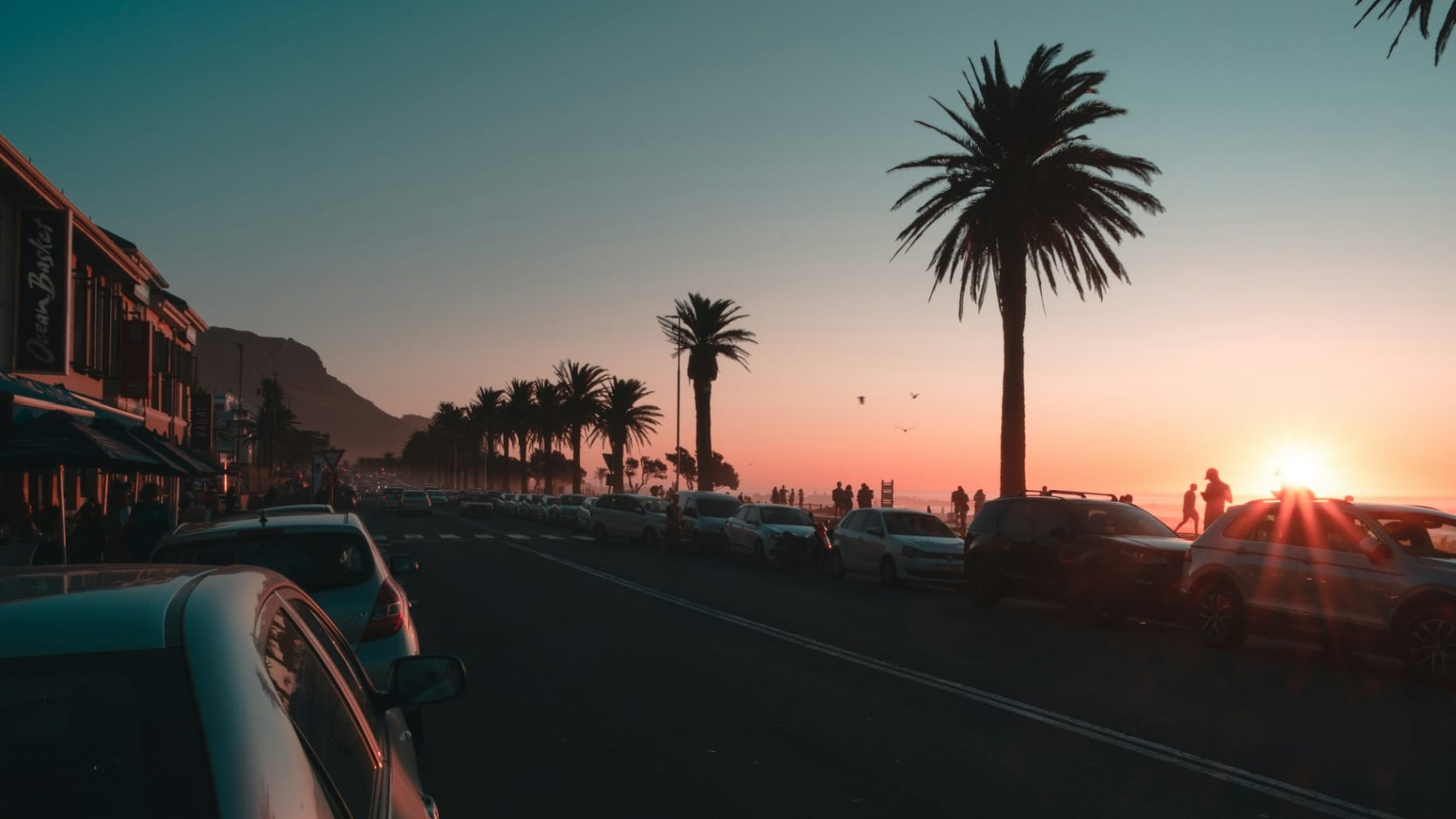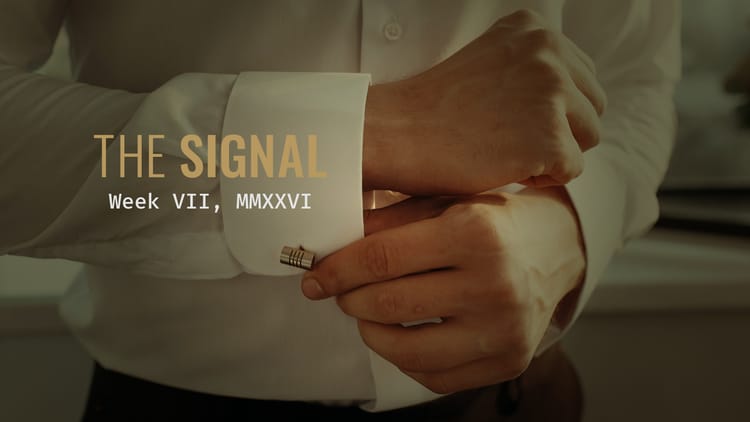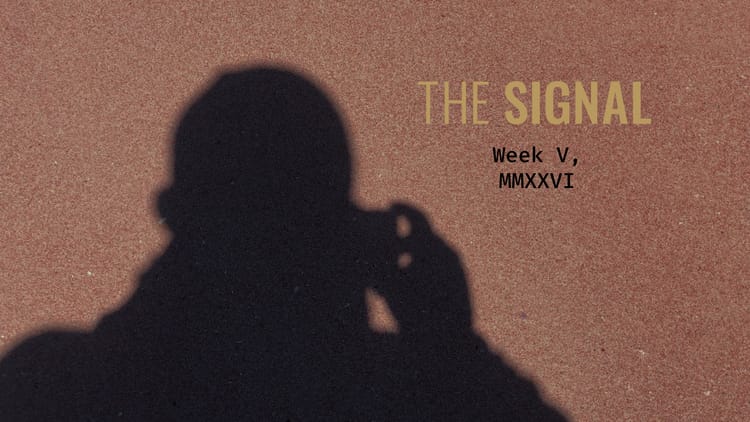Grand theft democracy

Developments
- Ukrainian officials stole US$100 million meant to protect nuclear plants from Russian strikes—and funneled money to … Russia.
- Moscow paid on TikTok to manipulate Romanian elections. … China is engineering corruption into development projects across 10 countries. … &c.
Features
- What does Qatar want from America? Nick Cleveland-Stout on Doha’s massive influence operation in Washington.
- Can new U.S. sanctions on oil from Russia end the war in Ukraine? Abraham Newman on the logic and goals of America’s economic-security strategy.
- What does Ukraine’s corruption have to do with Russia’s war? Miranda Patrucić on the post-Soviet system Kyiv is still struggling to escape.
Books
- Is the world entering a new era of catastrophic risk? Serhii Plokhy’s, The Nuclear Age: An Epic Race for Arms, Power, and Survival.
Music
- What’s the Numero Group?
- & New tracks from One, Two, Three, Four, & Five.
+ Weather report
- Flooding rains hit California; winter waits in the stratosphere …
Developments
‘Structured operations’ go global
On Wednesday, Ukraine’s energy and justice ministers resigned after anti-corruption investigators unveiled a US$100 million embezzlement scheme at Enerhoatom, the state nuclear operator. Officials had stolen 10 to 15 percent from contracts meant to fortify their country’s nuclear infrastructure against Russian strikes. Among those implicated: Timur Mindich, a former business partner of President Volodymyr Zelenskyy and, as of this week, current fugitive. It’s all very remarkable—but not least for this: Ukrainian investigators found a significant ratio of the stolen money flowing to Russia—the country that invaded Ukraine three and a half years ago and has been bombing the infrastructure these officials were supposed to protect since.
Remarkable, but not entirely surprising: Russia systematically uses corruption as warfare. Since October, Moscow has paid €1 million through TikTok to manipulate Romania’s election, sent US$15 million directly to 130,000 Moldovan bank accounts to buy votes, and orchestrated vote tampering in Georgia that triggered ongoing protests. It’s not just Russia, either. Other autocracies closely follow the same pattern. China has generated documented corruption through “Belt and Road” development projects in 10 countries—officials taking bribes to approve projects that would indebt their countries. Persian Gulf states spend US$100 million yearly on Washington lobbying firms and think tanks, with the U.A.E. alone hiring more than half of retired senior U.S. military officials who go to work for foreign governments.
Yet grand corruption—the large-scale theft of public resources by those in power—isn’t only autocratic. Brazil’s Operation Car Wash sent two presidents to prison after uncovering US$5 billion in Petrobras kickbacks. South Africa’s Gupta family captured state companies through democratic politicians. In the United States, the family of President Donald Trump has accumulated US$2.9 billion from cryptocurrency ventures while the administration dropped SEC investigations. Scoping out from it all, Transparency International’s index shows corruption stagnating globally for 12 years running. Grand corruption is everywhere, not just in autocracies—but autocrats’ fingerprints are everywhere, too.
What’s happening?
- Infrastructure for the taking. Today, grand corruption operates through legitimate structures rather than creating parallel ones. Ukraine’s Enerhoatom scheme used standard procurement processes—real contractors submitted real bids for real fortification work that genuinely needed doing. The 10-15 percent kickbacks were built into pricing from the start, incorporated rather than hidden. Brazil’s Petrobras scandal revealed the same mechanism—executives awarded contracts through regular bidding processes with pre-arranged winners who paid kickbacks routed to political slush funds. Odebrecht, Brazil’s largest construction company, maintained an entire department for managing bribes—they called it the “Division of Structured Operations”—complete with spreadsheets tracking which officials had been paid for which contracts. The corruption wasn’t separate from legitimate business; it was woven through it, using the very systems meant to ensure transparency and accountability.
- Autocracy’s essential mechanism. For autocracies, corruption isn’t dysfunction; it’s governance. The Signal’s contributor Miranda Patrucić has spent years tracking post-Soviet money. The pattern she sees: bribes aren’t bugs but features, the machinery through which power gets distributed and loyalty maintained. Putin didn’t eliminate corruption when he consolidated power; he monopolized it. The same officials who denounce corruption publicly collect payments privately. China’s Belt and Road Initiative operates on this principle systematically: Beijing puts more money into projects than they need, insists recipients keep accounting opaque, then watches as excess funds flow to officials who become dependent on Chinese largesse. Since 2013, there’s been documented Belt and Road corruption in at least 10 countries, from Sri Lanka’s Hambantota Port to Montenegro’s highway project that cost 25 percent of GDP. When autocracies export their infrastructure, they export their governance model with it.
- Strategic weaponization abroad. Autocracies have learned to weaponize corruption against democracies with surgical precision. Russia’s US$15 million to Moldova wasn’t random—it targeted 130,000 specific citizens whose votes could swing the election. In Romania, Moscow’s €1 million created 130,000 TikTok accounts in two weeks, pushing an unknown candidate from 6 percent to victory. The U.S. Department of Justice documented Russia funneling millions through RT employees to American media outlets. China’s United Front Work Department recruited officials from New York governor’s offices, offering everything from Nanjing salted ducks to real estate. The U.A.E. has hired over half of all retired senior U.S. military officials who work for foreign governments—a revolving door so established that American generals joke about their “U.A.E. retirement plan.” These aren’t crude bribes in envelopes; they’re sophisticated operations exploiting every legal pathway and social network available.
- Democracy’s structural vulnerability. Democracies can be distinctively vulnerable in their own way, because their openness—the quality that makes them democratic—becomes the vector for corruption. The Trump family’s US$2.9 billion from cryptocurrency ventures happened through registered companies filing SEC paperwork. World Liberty Financial doesn’t hide White House connections; it markets them—spend US$150 million collectively on tokens, get a private gala with the president. Persian Gulf states pour millions into think tanks as tax-deductible charitable contributions. Our contributor Ben Freeman found that two-thirds of the top U.S. foreign-policy think tanks accept funding from foreign governments. The money shapes research, influences policy recommendations, creates self-censorship. A researcher at Brookings knows Qatar funds their Middle East program. An analyst at the Atlantic Council knows the U.A.E. sponsors their Gulf initiatives. Democratic transparency becomes autocracy’s opportunity.
- The performance of accountability. Contemporary autocracies have perfected performing anti-corruption while practicing it systematically. Venezuela has prosecuted over 500 officials for corruption since 2017—almost exclusively opposition members or officials who fell from favor—while President Nicolás Maduro’s inner circle controls gold mining, oil exports, and food distribution. Pakistan’s National Accountability Bureau has prosecuted three prime ministers and dozens of ministers since 1999, yet the country’s corruption ranking barely moves, hovering between 117 and 140 out of 180 countries for two decades. Each government arrives promising to eliminate corruption, prosecutes predecessors, and then builds its own extraction networks. The spectacle substitutes for accountability. This performance serves a purpose: It exhausts public faith in genuine reform while allowing corrupt systems to regenerate continuously under the guise of fighting themselves.
- Corruption as credential. Some corruption now gains strength from exposure rather than concealment. The family of the Philippines’ President Bongbong Marcos never returned the estimated US$10 billion it stole during his fathers’s regime between the mid-1960s and mid-’80s. They didn’t apologize or offer restitution. Instead, they reframed their kleptocracy as prosperity, their theft as development. Young Filipinos today, born after the dictatorship, vote for the younger Marcos partly because his family’s wealth projects success. The Trump crypto ventures aren’t far from this pattern. A token auction in October explicitly offered White House access based on spending tiers. When Trump pardoned the founders of the cryptocurrency exchange and derivative-trading platform BitMEX, who pleaded guilty to money laundering, the value of his meme coin increased 18 percent within hours. The corruption becomes the qualification, the crime becomes the credential. What might once have destroyed political careers can now help power them.
- Global entrenchment. Transparency International’s corruption index has stagnated at 43 for twelve consecutive years. More than two-thirds of countries score below 50. In 148 countries, corruption levels have worsened or remained unchanged since 2012. This stagnation represents victory for autocratic systems: Every democracy that tolerates corruption domestically loses the capacity to resist it internationally. Every institution accepting tainted money becomes unable to criticize its source. The Signal’s Josh Rudolph has tracked how American legislators repeatedly treat foreign interference as ammunition for domestic political combat rather than a shared threat, ensuring loopholes remain open. The infrastructure of extraction grows more sophisticated—cryptocurrencies beyond traditional oversight, shell companies in proliferating jurisdictions, influence operations exploiting every social division. Democracy’s defenses weaken as corruption becomes normalized, expected, priced in.
It’s not a revelation that there’s corruption everywhere; that’s literally ancient news. But autocracy and corruption have become structurally inseparable. That’s a modern phenomenon. Autocracies require corruption to function. It’s how they distribute power, maintain loyalty, and extract resources. When they engage internationally, they export this model. Not as side effect but as strategy. They’ve discovered democracy’s paradox: the transparency and openness that make democratic systems legitimate also make them permeable. Every lobbying firm, think tank, political donation, or business deal becomes a potential vector.
The insidiously sophisticated part: Corruption has developed its own immune system. It performs its own opposition; Governments might prosecute 500 corrupt officials while the inner circle controls a nation’s wealth. Corruption can transform itself from a liability to a credential—with stolen billions becoming proof of competence. Corruption has normalized the kinds of infrastructure enabling it to the point where dismantling it would mean dismantling significant aspects of how contemporary democracies function.
This is a central struggle for and within democratic life in the world today—though people rarely name it as such. It’s not between left and right, nationalist and globalist, but between systems that depend on corruption to function and systems that depend on public integrity to survive. Ukraine’s anti-corruption prosecutors work while bombs fall around them. Brazilian investigators persist despite immense political pressure. Romanian intelligence services expose election manipulation while lines of corruption run through their own organizations. All the protagonists here see the pattern: Corruption is autocracy’s primary weapon for promoting democracy’s failure.
Democracies may not be able to eliminate corruption. But so far, even in the toughest circumstances, corruption hasn’t been able to eliminate democratic resistance. Investigators like those who released their reporting in Kyiv this week keep working not because they believe they’ll win but because they understand what happens when they stop. Every scheme agents of democracy expose makes the next one harder to hide. Every network mapping they do makes the next corruption network costlier to build. Every careful prosecution, even when it fails, raises the price of participation. Corruption adapts—but so does the machinery of accountability. This isn’t a war with victory conditions. It’s maintenance work—unglamorous, unending, essential.

Meanwhile
The longest shutdown. The 43-day U.S.-government closure ended on Wednesday after eight Senate Democrats broke ranks—dropping their demand that Congress extend health-care subsidies for 21 million Americans before they expire in January. They got a promise of a December vote the House hasn’t committed to honor. Federal workers returned to agencies that attempted mass layoffs during the shutdown. Congress funded the government only through January 30—meaning this could happen again in seven weeks. … See “On the 41st day.”
Choosing your enemy. A courthouse bombing in Islamabad on Tuesday killed 12; the Pakistani Taliban splinter group Jamaat-ul-Ahrar claimed responsibility. Pakistan’s government blamed India and Afghanistan instead—then declared a “state of war.” Hours earlier, a car bombing near Delhi’s Red Fort killed eight, with no verified claim of responsibility. India cited “military-inspired constitutional subversion” inside Pakistan. Both militaries went on alert. The Islamabad attack was the capital’s deadliest since 2008, but the diplomatic escalation suggests the bombing has become useful regardless of who’s behind it. … See “Pakistan under siege.”
The Epstein emails. Emails from the estate of the convicted sex offender Jeffrey Epstein, released by U.S. House Democrats this week, don’t settle much about Trump’s involvement. One has Epstein telling Ghislaine Maxwell someone “spent hours at my house” with Trump; another: “Of course he knew about the girls.” Trump neither sent nor received the emails. The White House says the key message refers to a late Epstein victim who never accused Trump. House Speaker Mike Johnson has now scheduled a vote on releasing all Epstein files held by the Justice Department. Trump called it a “hoax.” The vote will go ahead next week in all events. … See “Epstein’s version of events.”
Features
‘A huge, flying conflict of interest’
What does Qatar want from America? Nick Cleveland-Stout on Doha’s massive influence operation in Washington.





